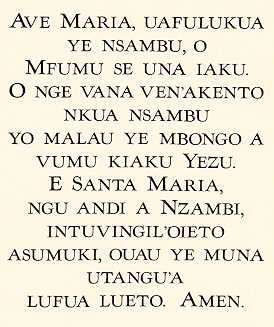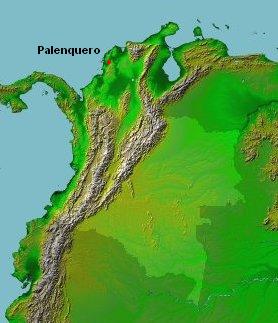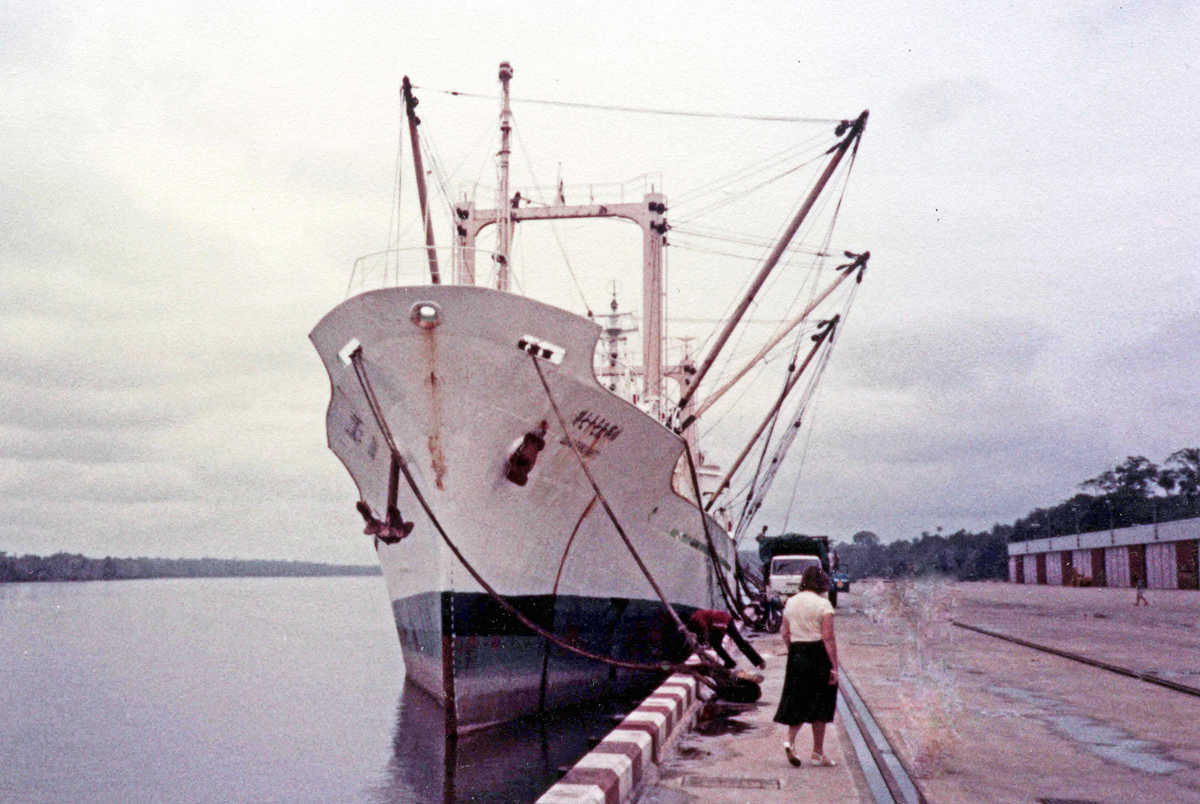|
Bruca Maniguá
"Bruca maniguá" is an afro-son composed by Arsenio Rodríguez in 1937. It was first recorded by Orquesta Casino de la Playa featuring Miguelito Valdés on vocals in June 1937. Ever since it has become a Cuban son standard, with famous versions by Abelardo Barroso, Sierra Maestra, Buena Vista Social Club and Ibrahim Ferrer. The song, which has been called "a landmark in the development of Cuban popular music" by Ned Sublette, was Arsenio Rodríguez's first hit and an example of his Afro-Cuban style of son within the afrocubanismo movement. History Both the lyrics and the music of the song were written in 1937 by Arsenio Rodríguez, who at the time was 25 years old and the ''de facto'' musical director of the Septeto Bellamar, which he had joined in 1934. The popularity of the group made him become acquainted with important musicians such as Antonio Arcaño and Miguelito Valdés. The latter was the singer of the famous big band Orquesta Casino de la Playa and in June 1937, Valdés ... [...More Info...] [...Related Items...] OR: [Wikipedia] [Google] [Baidu] |
Orquesta Casino De La Playa
Orquesta Casino de la Playa, founded in 1937 in Havana, Cuba, was a band that bridged Cuban popular music and the sound of American Jazz Big Bands. It was led by tres player Arsenio Rodríguez, and launched the career of many important musicians in Cuban music. The group took its name from the name of the casino where they worked. In 1948, it relocated to Mexico City. History In the middle of 1937, RCA Victor made a variety of recordings in Havana with more than 20 groups with different formats. The Orquesta Casino de la Playa recorded six numbers, and among this songs they performed a version of Arsenio Rodríguez' "Bruca maniguá". With this recording, they began their growth in and outside of Cuba. Between 1937 and 1939, the band recorded over 60 songs and made several tours all along América. In 1941, the director of the orchestra Anselmo Sacasas and the singer Miguelito Valdés abandoned the band and traveled to the United States to develop their own projects. Sacasas w ... [...More Info...] [...Related Items...] OR: [Wikipedia] [Google] [Baidu] |
Antonio Arcaño
Antonio Arcaño Betancourt (Atarés, Havana 29 December 1911 – 1994) was a Cuban flautist, bandleader and founder of Arcaño y sus Maravillas, one of Cuba's most successful charangas. He retired from playing in 1945, but continued as director of the group until its dissolution in 1958. Despite his early retirement due to health problems, he is considered one of the most influential flautists in Cuba. After leaving La Maravilla del Siglo, a very popular charanga, Arcaño founded La Maravilla de Arcaño, later known as Arcaño y sus Maravillas. The band featured the López brothers, Israel López "Cachao" and Orestes López, composers and multi-instrumentalists that originated the danzón-mambo, the direct precursor of the mambo, through compositions such as " Rareza de Melitón", "Se va el matancero" and, above all, "Mambo", the piece that lent its name to the genre. Arcaño was posthumously inducted into the International Latin Music Hall of Fame in 2000. See also * José Faja ... [...More Info...] [...Related Items...] OR: [Wikipedia] [Google] [Baidu] |
Puchito
Puchito Records was Cuba's second independent record label. It was founded in 1954 during the mambo and cha-cha-chá explosion. Many of its recordings, produced by its founder Jesús Gorís, became instant hits. History Early career of Puchito's founder The founder, Jesús Gorís ''(né'' Jesús Ramon Francisco Gorís Ballas; 12 April 1921 Havana, Cuba – 16 Aug 2006 Miami, Florida) had been a representative of RCA Victor, selling records from a separate counter at his father's hardware store, La Estrella. Eventually, the store became known as Gorís Shop. In 1952, Gorís invested in a single, "Guantanamera", composed by Joseíto Fernández, which did well in jukeboxes. Gorís and two partners, Messrs. Alfredo Beltrán and Oliva, originally wanted to launch a series of children's records, so they chose the name Puchito, which, in this context, means "youngest child." In 1954, Gorís and his two partners produced an LP of Olga Guillot singing with The Castro Brothers Or ... [...More Info...] [...Related Items...] OR: [Wikipedia] [Google] [Baidu] |
Xavier Cugat
Xavier Cugat (; 1 January 1900 – 27 October 1990) was a Spanish musician and bandleader who spent his formative years in Havana, Cuba. A trained violinist and arranger, he was a leading figure in the spread of Latin music. In New York City he was the leader of the resident orchestra at the Waldorf–Astoria before and after World War II. He was also a cartoonist and a restaurateur. The personal papers of Xavier Cugat are preserved in the Biblioteca de Catalunya. Life and career Cugat was born Francisco de Asís Javier Cugat Mingall de Bru y DeulofeuXavier Cugat official webpage xaviercugat.com; accessed 8 November 2015. in , |
Palo Monte
Palo, also known as Las Reglas de Congo, is an African diasporic religion that developed in Cuba during the late 19th or early 20th century. It arose through a process of syncretism between the traditional Kongo religion of Central Africa, the Roman Catholic branch of Christianity, and Spiritism. Initiates in the religion are termed ''paleros'' (male) or ''paleras'' (female). An initiatory religion, Palo is organised through small autonomous groups called ''munanso congo'', each led by a figure known as a ''tata'' (father) or ''yayi'' (mother). Although teaching the existence of a creator deity, Nsambi or Sambia, Palo regards this entity as being uninvolved in human affairs and thus focuses its attention on the spirts of the dead, collectively known as ''Kalunga''. Central to Palo is the ''nganga'' or ''prenda'', a vessel usually made from an iron cauldron, clay pot, or gourd. Many ''nganga'' are regarded as material manifestations of particular deities known as ''mpungu''. The ''n ... [...More Info...] [...Related Items...] OR: [Wikipedia] [Google] [Baidu] |
Kikongo
Kongo or Kikongo is one of the Bantu languages spoken by the Kongo people living in the Democratic Republic of the Congo, the Republic of the Congo, Gabon and Angola. It is a tonal language. It was spoken by many of those who were taken from the region and sold as slaves in the Americas. For this reason, while Kongo still is spoken in the above-mentioned countries, creolized forms of the language are found in ritual speech of Afro-American religions, especially in Brazil, Cuba, Puerto Rico, the Dominican Republic and Haiti. It is also one of the sources of the Gullah language and the Palenquero creole in Colombia. The vast majority of present-day speakers live in Africa. There are roughly seven million native speakers of Kongo, with perhaps two million more who use it as a second language. Geographic distribution Kongo was the language of the Kingdom of Kongo prior to the creation of Angola by the Portuguese Crown in 1575 and the Berlin Conference (1884-1885) that balkanized the ... [...More Info...] [...Related Items...] OR: [Wikipedia] [Google] [Baidu] |
Bozal Spanish
Bozal Spanish is a possible extinct Spanish-based creole language or pidgin that may have been a mixture of Spanish and Kikongo, with Portuguese influences. Attestation is insufficient to indicate whether Bozal Spanish was ever a single, coherent or stable language, or if the term merely referred to any idiolect of Spanish that included African elements. Etymology ''Bozal'' is the Spanish word for " muzzle", and shares it etymology with the word bosal. In their New World colonies, the Spaniards distinguished between '' negros ladinos''esclavo ladino' in the Diccionario de la Real Academia Española. ("Latinate Negros", those who had spent more than a year in a Spanish-speaking territory) and ''negros bozales'' (wild, untamed Negroes; those born in or freshly arrived from Africa). Similarly, the Portuguese distinguished between (tamed, domesticated Indians) and (untamed, wild Indians), and between or (Black creoles born in the territory of a European empire) and or (bla ... [...More Info...] [...Related Items...] OR: [Wikipedia] [Google] [Baidu] |
Spanish-based Creole Languages
A Spanish creole, or Spanish-based creole language, is a creole language (contact language with native speakers) for which Spanish serves as its substantial ''lexifier''. A number of creole languages are influenced to varying degrees by the Spanish language, including the Philippine creole varieties known as Chavacano, Palenquero, and Bozal Spanish. Spanish also influenced other creole languages like Papiamento, Pichinglis, and Annobonese. Any number of Spanish-based pidgins have arisen due to contact between Spanish and other languages, especially in America, such as the used by the Panare people of Venezuela and Roquetas Pidgin Spanish used by agricultural workers in Spain. However, few Spanish pidgins ever creolized. Spanish creole languages Chavacano Chavacano (also Chabacano) is a group of Spanish-based creole language varieties spoken in the Philippines that emerged during the 18th century following the colonization of the Spaniards in the Philippines. While Chava ... [...More Info...] [...Related Items...] OR: [Wikipedia] [Google] [Baidu] |
Nigeria
Nigeria ( ), , ig, Naìjíríyà, yo, Nàìjíríà, pcm, Naijá , ff, Naajeeriya, kcg, Naijeriya officially the Federal Republic of Nigeria, is a country in West Africa. It is situated between the Sahel to the north and the Gulf of Guinea to the south in the Atlantic Ocean. It covers an area of , and with a population of over 225 million, it is the most populous country in Africa, and the world's sixth-most populous country. Nigeria borders Niger in the north, Chad in the northeast, Cameroon in the east, and Benin in the west. Nigeria is a federal republic comprising of 36 states and the Federal Capital Territory, where the capital, Abuja, is located. The largest city in Nigeria is Lagos, one of the largest metropolitan areas in the world and the second-largest in Africa. Nigeria has been home to several indigenous pre-colonial states and kingdoms since the second millennium BC, with the Nok civilization in the 15th century BC, marking the first ... [...More Info...] [...Related Items...] OR: [Wikipedia] [Google] [Baidu] |
Calabar
Calabar (also referred to as Callabar, Calabari, Calbari and Kalabar) is the capital city of Cross River State, Nigeria. It was originally named Akwa Akpa, in the Efik language. The city is adjacent to the Calabar and Great Kwa rivers and creeks of the Cross River (from its inland delta). Calabar is often described as the tourism capital of Nigeria, especially due to several initiatives implemented during the administration of Donald Duke as governor of Cross River State (1999–2007), which made the city the cleanest and most environmentally friendly city in Nigeria. Administratively, the city is divided into Calabar Municipal and Calabar South Local Government Areas. It has an area of and a population of 371,022 as at 2006 census. History Calabar was the name given by the Portuguese discoverers from the 15th century to the tribes on this part of the Guinea coast at the time of their arrival, when the present inhabitants in the district were the Quas. It was not till th ... [...More Info...] [...Related Items...] OR: [Wikipedia] [Google] [Baidu] |
University Of Pittsburgh Press
The University of Pittsburgh Press is a scholarly publishing house and a major American university press, part of the University of Pittsburgh. The university and the press are located in Pittsburgh, Pennsylvania, in the United States. The press publishes several series in the humanities and social sciences, including Illuminations—Cultural Formations of the Americas; Pitt Latin American Series; Pitt Series in Russian and East European Studies, Pittsburgh Series in Composition, Literary, and Culture; Pittsburgh/Konstanz Series in Philosophy and History of Science; Culture, Politics, and the Built Environment; Central Eurasia in Context, and Latinx and Latin American Profiles. The press is especially known for literary publishing, particularly its Pitt Poetry Series, the Agnes Lynch Starrett Poetry Prize, and the Drue Heinz Literature Prize. The press also publishes the winner of the annual Donald Hall Prize, awarded by the Association of Writers & Writing Programs and the winne ... [...More Info...] [...Related Items...] OR: [Wikipedia] [Google] [Baidu] |
World Circuit (record Label)
World Circuit is a British world-music record label, established in London in the mid-1980s, that specializes in Cuban and West African recording artists, among other international music stars. The label's founding principle was to be an artist-led company with all aspects of each release tailored to the artist. This continues to be the label's way of working. World Circuit celebrated its 20th anniversary in 2006 by releasing ''World Circuit Presents...'', a 2-disc retrospective compilation album. In 2018, World Circuit was acquired by BMG Rights Management. History 1986 to 1999 In 1986, the label released its first albums, María Rodríguez's ''La Tremenda'' and Abd El Gadir Salim's ''Sounds of Sudan Volume One''. World Circuit's first taste of major success came in 1993 with the teaming of Ali Farka Touré and American guitarist Ry Cooder on the Grammy award-winning album, '' Talking Timbuktu''. The album went on to sell over a million copies worldwide; a remarkable tot ... [...More Info...] [...Related Items...] OR: [Wikipedia] [Google] [Baidu] |






